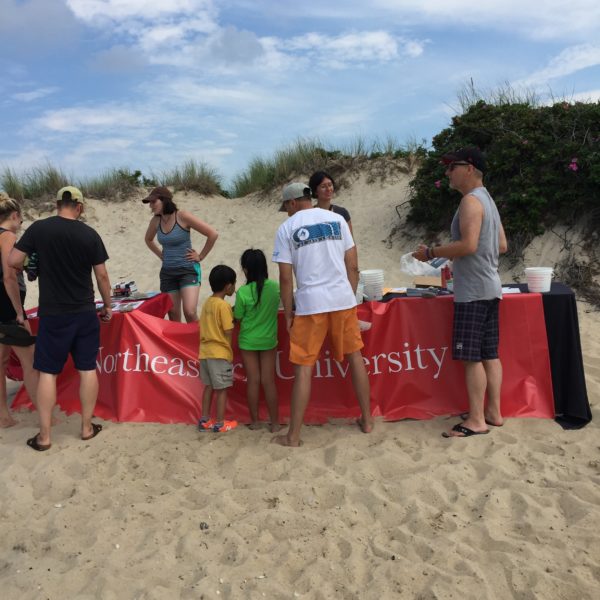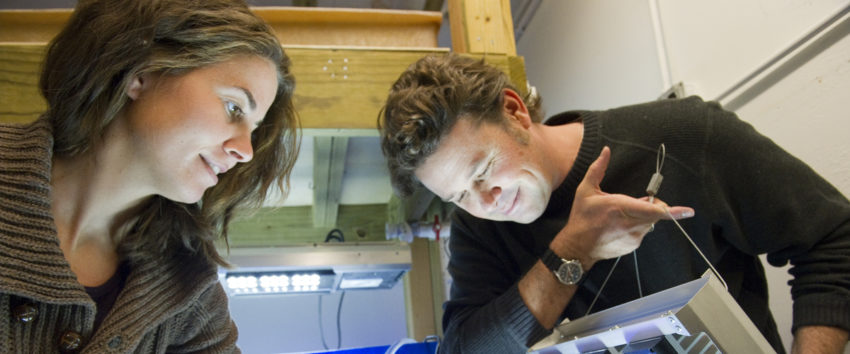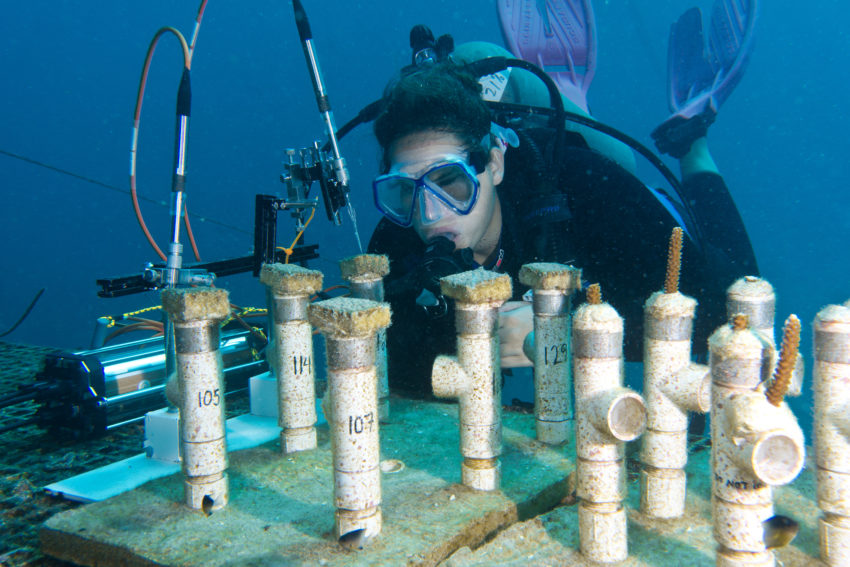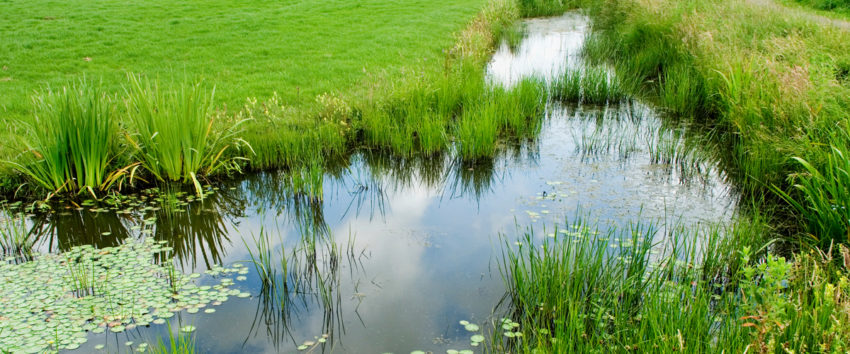News
Citizen scientists help OGL collect marine species on Martha’s Vineyard
The Ocean Genome Legacy hosted a Bioblitz, which helps them track precisely what marine life is living where. The participants collected more than a dozen species.
August 02, 2016
Citizen scientists help OGL collect marine species on Martha’s Vineyard
The Ocean Genome Legacy hosted a Bioblitz, which helps them track precisely what marine life is living where. The participants collected more than a dozen species.
August 02, 2016
3Qs: What coral bleaching in the Great Barrier Reef means for the world
Marine scientists in Australia recently reported that 93 percent of the Great Barrier Reef is now bleached. Northeastern’s Steven Vollmer explains why the condition, typically the result of warming ocean temperatures, could lead to “the ocean’s equivalent of a rainforest with no trees.”
May 02, 2016
Undergraduate research leads to NSF graduate research fellow award
One of this year’s NSF graduate research fellowship awardees is Sara Williams, a Research Technician at the Marine Science Center and an incoming graduate student in Northeastern’s Ecology, Evolution, and Marine Biology PhD program.
June 23, 2015
Exciting changes for the Three Seas and MS Marine Biology program
It is our pleasure to announce an important transition for Northeastern University’s Three Seas Program.
October 14, 2014
Lobsterwoman turned marine biologist fishes for answers
Northeastern graduate student Marissa McMahan is marshaling her scientific training and her family's connection to the Maine lobster industry to research the black sea bass' northern range expansion due to climate change.
July 21, 2014
Size is important – even for algae
Associate Professor Matt Bracken recently published findings of a six-year study in the journal Ecology. Bracken and colleagues measured the effect that seaweed diversity has on invertebrates large and small in the rocky intertidal zones of northern California.
November 27, 2013
Underwater Science
Incoming Marine Biology professor Mark Patterson talks about studying science underwater.
July 10, 2013
Invasive Species: Understanding the Threat Before It’s Too Late
Catching rides on cargo ships and fishing boats, many invasive species are now covering our shorelines and compromising the existence of our native marine life. In a study published in Ecology Letters, Northeastern University Prof. David Kimbro and his team examine what factors allow some invasive species to survive in their new environments and others to fail.
March 22, 2013
Invasive Species: Understanding the Threat Before It's Too Late
Catching rides on cargo ships and fishing boats, many invasive species are now covering our shorelines and compromising the existence of our native marine life. In a study published in Ecology Letters, Northeastern University Prof. David Kimbro and his team examine what factors allow some invasive species to survive in their new environments and others to fail.
March 22, 2013
Meet Dan Blustein, A College of Science Twitter Ambassador
Dan Blustein is a marine biologist working on his PhD at Northeastern University's Marine Science Center in Nahant. He is also a College of Science Twitter Ambassador.
March 18, 2013
Seminal conference to explore urban coastal sustainability
The majority of the world’s cities lie on a shoreline, and by 2020, two-thirds of all Americans are expected to reside in coastal cities.
February 05, 2013









